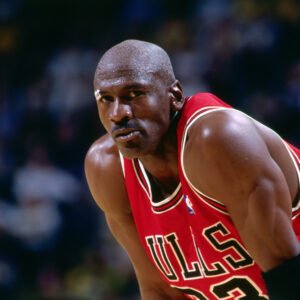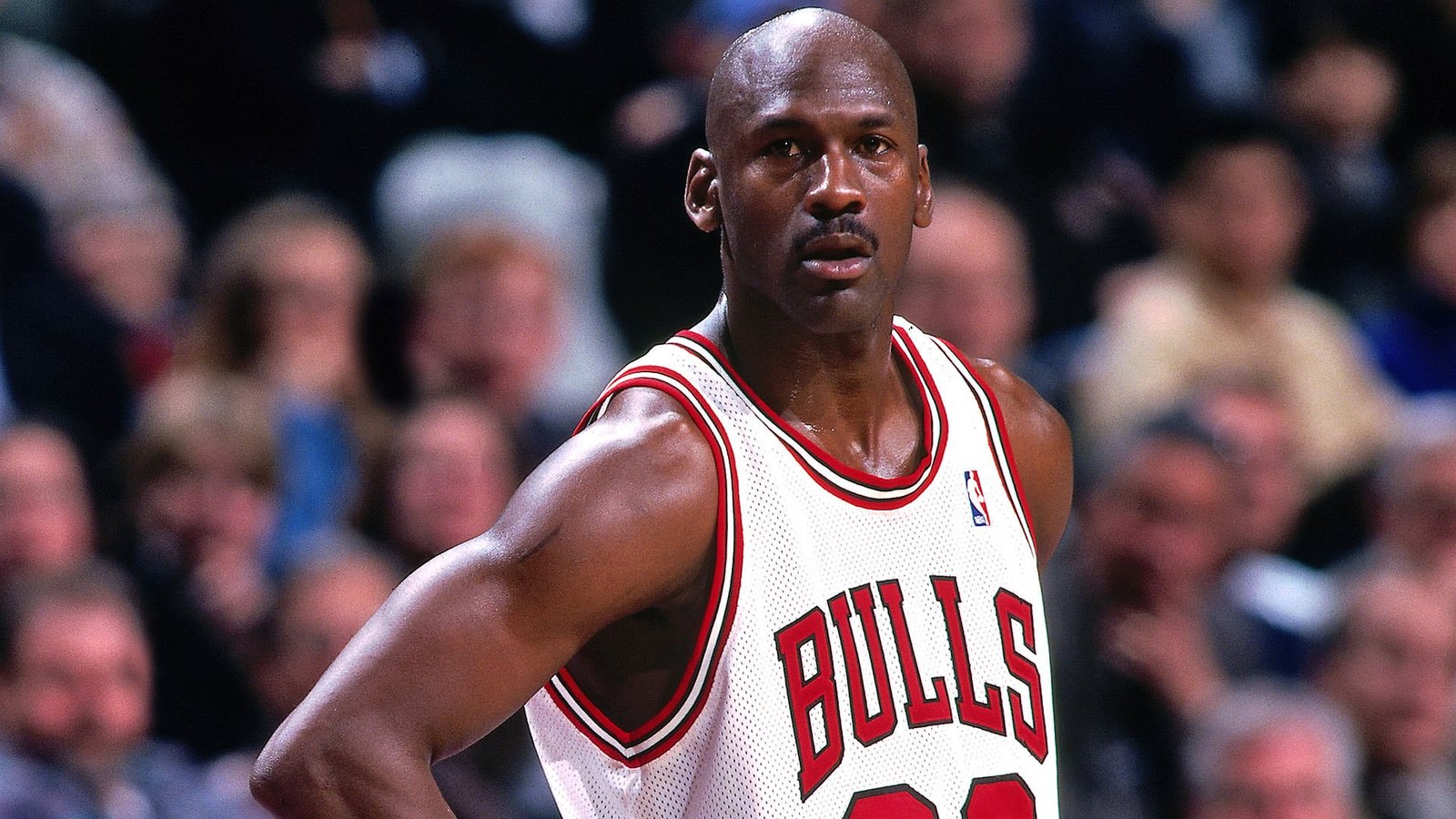Michael Jordan, often hailed as the greatest basketball player of all time, has left an indelible mark on the sport. Born on February 17, 1963, in Brooklyn, New York, Jordan’s journey from a young basketball enthusiast to a global icon is nothing short of legendary.
Early Life and College Success
Jordan’s basketball career began in high school at Emsley A. Laney High School in Wilmington, North Carolina, where he quickly gained attention for his talent. His impressive performance earned him a scholarship to the University of North Carolina at Chapel Hill. Under the guidance of coach Dean Smith, Jordan led the Tar Heels to a national championship in 1982, hitting the game-winning shot in the final against Georgetown.

NBA Career: Dominance and Triumph
Jordan entered the NBA as the third overall pick in the 1984 Draft, selected by the Chicago Bulls. His impact was immediate; he won the NBA Rookie of the Year award in 1985. Over his career, Jordan’s style of play and competitive spirit revolutionized the game. He was known for his scoring prowess, incredible athleticism, and defensive tenacity.
Jordan led the Bulls to six NBA championships in the 1990s, achieving a three-peat twice (1991-1993 and 1996-1998). His iconic moments include his clutch performances in the playoffs, such as the “Flu Game” in the 1997 NBA Finals and his final shot with the Bulls in the 1998 Finals against the Utah Jazz.
The First Retirement and Comeback
Jordan first retired from basketball in 1993, citing the murder of his father and a loss of passion for the game. He pursued a career in professional baseball, signing with the Chicago White Sox and playing for their minor league affiliate. However, his baseball career did not match his basketball success.
In March 1995, Jordan returned to the NBA with a simple message: “I’m back.” His comeback was marked by a dramatic return to form, leading the Bulls to three more championships and solidifying his legacy as an unparalleled competitor.
The Second Retirement and Legacy
Jordan retired for the second time in 1999, but his influence on the game did not wane. He became part-owner and President of Basketball Operations for the Washington Wizards, later coming out of retirement to play two seasons with the Wizards before retiring for good in 2003.
Jordan’s impact extends beyond the court. His Air Jordan brand, in collaboration with Nike, became a cultural phenomenon and remains one of the most successful and recognizable athletic shoe lines in history. His influence on popular culture, fashion, and global sports marketing is profound.
Off the Court
Beyond his basketball achievements, Jordan has made significant contributions through philanthropy. His charitable endeavors include donations to educational institutions, health organizations, and community programs. Jordan’s leadership and business ventures, including his role as principal owner of the Charlotte Hornets, further cement his status as a multifaceted icon.
Conclusion
Michael Jordan’s legacy is a testament to his unparalleled skill, fierce competitiveness, and enduring influence on basketball and beyond. His story is one of relentless determination and extraordinary achievement, inspiring countless individuals to strive for greatness in their own lives. As the world continues to celebrate his contributions to sports and culture, Michael Jordan remains an enduring symbol of excellence and perseverance.

